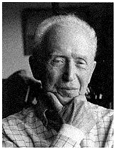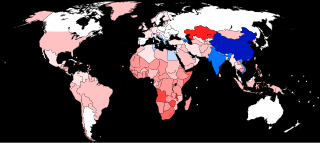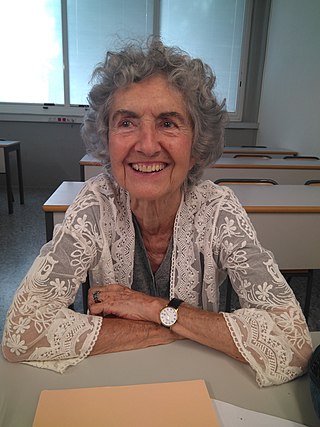Related Research Articles

Marriage, also called matrimony or wedlock, is a culturally and often legally recognised union between people called spouses. It establishes rights and obligations between them, as well as between them and their children, and between them and their in-laws. It is nearly a cultural universal, but the definition of marriage varies between cultures and religions, and over time. Typically, it is an institution in which interpersonal relationships, usually sexual, are acknowledged or sanctioned. In some cultures, marriage is recommended or considered to be compulsory before pursuing sexual activity. A marriage ceremony is called a wedding, while a private marriage is sometimes called an elopement.
Divorce is the process of terminating a marriage or marital union. Divorce usually entails the canceling or reorganising of the legal duties and responsibilities of marriage, thus dissolving the bonds of matrimony between a married couple under the rule of law of the particular country or state. It can be said to be a legal dissolution of a marriage by a court or other competent body. It is the legal process of ending a marriage.

Gary Stanley Becker was an American economist who received the 1992 Nobel Memorial Prize in Economic Sciences. He was a professor of economics and sociology at the University of Chicago, and was a leader of the third generation of the Chicago school of economics.

Feminist economics is the critical study of economics and economies, with a focus on gender-aware and inclusive economic inquiry and policy analysis. Feminist economic researchers include academics, activists, policy theorists, and practitioners. Much feminist economic research focuses on topics that have been neglected in the field, such as care work, intimate partner violence, or on economic theories which could be improved through better incorporation of gendered effects and interactions, such as between paid and unpaid sectors of economies. Other feminist scholars have engaged in new forms of data collection and measurement such as the Gender Empowerment Measure (GEM), and more gender-aware theories such as the capabilities approach. Feminist economics is oriented towards the goal of "enhancing the well-being of children, women, and men in local, national, and transnational communities."

Consumption is the act of using resources to satisfy current needs and wants. It is seen in contrast to investing, which is spending for acquisition of future income. Consumption is a major concept in economics and is also studied in many other social sciences.
Feminist theory is the extension of feminism into theoretical, fictional, or philosophical discourse. It aims to understand the nature of gender inequality. It examines women's and men's social roles, experiences, interests, chores, and feminist politics in a variety of fields, such as anthropology and sociology, communication, media studies, psychoanalysis, political theory, home economics, literature, education, and philosophy.

Jacob Mincer, was a father of modern labor economics. He was Joseph L. Buttenwieser Professor of Economics and Social Relations at Columbia University for most of his active life.

Claudia Dale Goldin is an American economic historian and labor economist. She is the Henry Lee Professor of Economics at Harvard University. In October 2023, she was awarded the Nobel Memorial Prize in Economic Sciences "for having advanced our understanding of women's labor market outcomes”. The third woman to win the award, she was the first woman to win the award solo.

Family economics applies economic concepts such as production, division of labor, distribution, and decision making to the family. It is used to explain outcomes unique to family—such as marriage, the decision to have children, fertility, time devoted to domestic production, and dowry payments using economic analysis.
Barbara Reskin is a professor of sociology. As the S. Frank Miyamoto Professor of Sociology at the University of Washington, Reskin studies labor market stratification, examining job queues, nonstandard work, sex segregation, and affirmative action policies in employment and university admissions, mechanisms of work-place discrimination, and the role of credit markets in income poverty and inequality.

The human sex ratio is the ratio of males to females in a population in the context of anthropology and demography. In humans, the natural sex ratio at birth is slightly biased towards the male sex. It is estimated to be about 1.05 or 1.06 or within a narrow range from 1.03 to 1.06 males per female. The sex ratio for the entire world population is approximately 101 males to 100 females.
Household economics analyses all the decisions made by a household. These analyses are both at the microeconomic and macroeconomic level. This field analyses the structures of households, the behavior of family members, and their broader influence on society, including: household consumption, division of labour within the household, allocation of time to household production, marriage, divorce, fertility, investment in children, and resource allocation. Malthus and Adam Smith studied the economics of the family in part by looking at the relationship between family size and living wage. Similarly, J.S. Mill and Le Play analysed the impacts of different family structures on the standard of living of different family members through redistribution of family resources, insurance and self production.

Lourdes Benería is a Spanish–American economist. She was Professor Emerita at Cornell University's Department of City and Regional Planning. The author and editor of many books and articles, her work has concentrated on topics having to do with labor economics, women's work, the informal economy, Gender and development, Latin American Development and globalization. Before Cornell, she taught at Rutgers University and has given courses in other international centers. She worked at the ILO for two years and has collaborated with other UN organizations, such as UNIFEM and UNDP, and with several NGOs. She obtained her PhD at Columbia University in 1975.
Intra-household bargaining refers to negotiations that occur between members of a household in order to arrive at decisions regarding the household unit, like whether to spend or save or whether to study or work.
The economics of marriage includes the economic analysis of household formation and break up, of production and distribution decisions within the household. It is closely related to the law and economics of marriages and households. Grossbard-Shechtman identifies three approaches to the subject: the Marxist approach, the neo-classical approach and the game theoretic approaches. Marital status has a positive influence on economic status. There is a marriage prime for males that the wage of married males is 15% higher than the wage of never married male. The Uniform Marital Property Act issued clause on the distribution of marital property and individual property. The Uniform Premarital Agreements Act offers clauses to guide two spouses to make an agreement on distribution of rights and obligations before marriage.
The Review of Economics of the Household is a peer-reviewed academic journal established in 2001 by Shoshana Grossbard and first published in 2003. It publishes empirical and theoretical research on the economic behavior and decision-making processes of single and multi-person households. Household decisions analyzed in this journal include consumption, savings, labor supply and other time uses, marriage and divorce, demand for health and other forms of human capital, fertility and investment in children's human capital, households and environmental economics, economics of migration, and economics of religion. The journal is particularly interested in policy-relevant economic analyses of the effects of policy instruments on household decisions. Even though its focus is on micro-level applications, it also covers macro-economic applications and research on economic development. Review articles pertaining to household economics are published in the Perspectives section.
Michael Grossman is an American health economist and economics professor emeritus at the City University of New York Graduate Center (CUNY). He directed the Health Economics Program at the National Bureau of Economic Research (NBER) from 1972 to 2020. Grossman was an early contributor to New Home Economics (NHE).
The parental dividend is a policy proposal first suggested by economist Shirley P. Burggraf during a Bunting Fellowship at Radcliffe College. It proposes replacing the current generalized labor market funding apparatus of the US Social Security system with one that preferentially rewards parental labor and investment. While the current US Social Security system collects payroll taxes from working adults and redistributes them to retirees in amounts based on pre-retirement earnings, the parental dividend is a retirement benefit calculated according to the income of one's own adult children.
Shelly J. Lundberg is an economist and currently holds the positions of Leonard Broom Professor of Demography at the University of California, Santa Barbara, where she serves as Associate Director of the Broom Center for Demography. Lundberg is one of the world's leading population economists.
Robert A. Pollak is an economist. Pollak has made contributions to the specification and estimation of consumer demand systems, social choice theory, the theory of the cost of living index, and since the early 1980s, to the economics of the family and to demography. He is currently the Hernreich Distinguished Professor of Economics at Washington University in St. Louis, holding joint appointments in the Faculty of Arts & Sciences and in the Olin Business School.
References
- ↑ Institut zur Zukunft der Arbeit(IZA)(Accessed July 2019)
- ↑ "SEHO". sites.google.com. Retrieved 2024-12-31.
- 1 2 Grossbard-Shechtman, Shoshana (1993). On the economics of marriage: a theory of marriage, labor, and divorce. Boulder: Westview Press. ISBN 978-0-8133-8527-3.
- ↑ Grossbard, Shoshana (2015). A Price Theory of Marriage. How Marriage Markets Affect Employment, Consumption and Savings. New York: Springer. ISBN 978-1-4614-1623-4.
- ↑ Ellickson, Robert C. (2008). The Household: Informal Order around the Hearth. Princeton University Press. ISBN 978-0-691-13442-0.
- ↑ Grossbard, Shoshana (2007). "Repack the Household: A Comment on Robert Ellickson's Unpacking the Household". Yale Law Journal Pocket Edition. 116: 341.
- ↑ David M. Heer and Amyra Grossbard-Shechtman "The Impact of the Female Marriage Squeeze and the Contraceptive Revolution on Sex Roles and the Women's Liberation Movement in the United States, 1960 to 1975," Journal of Marriage and the Family, 43(1): 49-65, 1981
- ↑ Shoshana Grossbard-Shechtman, On the Economics of Marriage - A Theory of Marriage, Labor and Divorce. Boulder, CO: Westview Press, 1993.
- ↑ Shoshana Grossbard-Shechtman and Clive W. Granger. "Women’s Jobs and Marriage, Baby-Boom versus Baby-Bust," Population, 53: 731-52, September 1998 (in French)
- ↑ Catalina Amuedo-Dorantes and Shoshana Grossbard. “Marriage Markets and Women’s Labor Force Participation,” Review of Economics of the Household 5:249-278, 2007